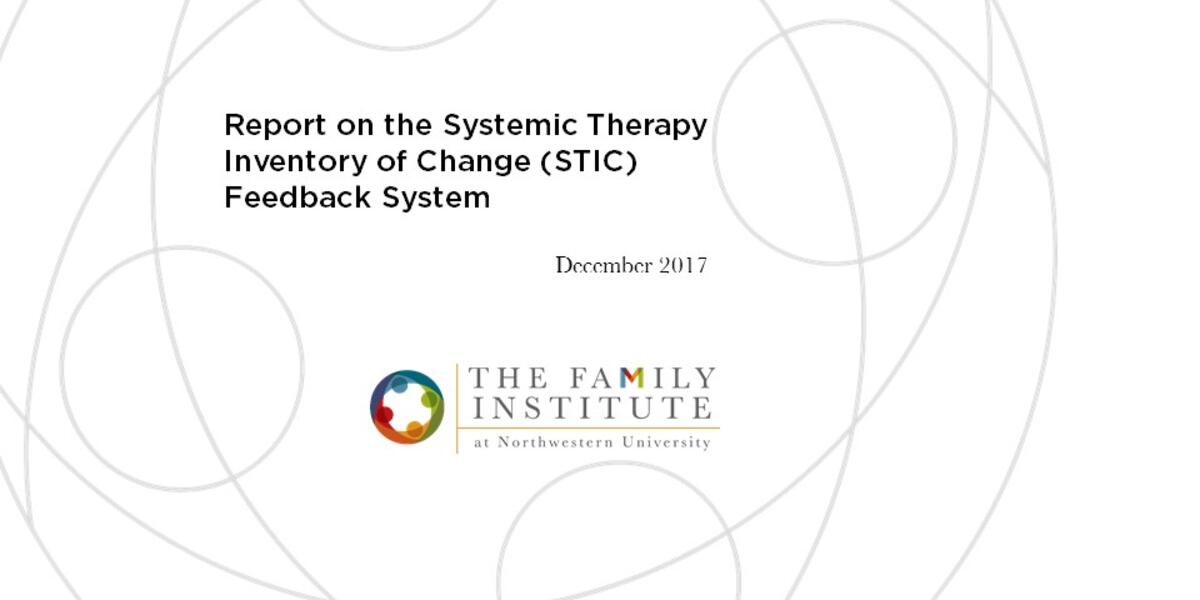December 2017
Executive summary
Over the past decade, empirical feedback has emerged as a key area of focus for improving clinical outcomes in psychotherapy. Empirical feedback systems collect data from clients and feed it back to therapists to aid in decision making in therapy. The Systemic Therapy Inventory of Change, or STIC®, is the first systemic feedback system — the STIC® is the first tool to assess change across multiple relationships and multiple domains of functioning, so it can be used in individual, couple and family therapy.
Working within an Integrative Systemic Therapy framework and rooted in relationship-based behavioral health, The Family Institute at Northwestern University's research team initially developed the STIC® as a research-focused, paper-and-pencil questionnaire given to clients. The first version of the STIC® was completed in 2000. Over time, what began as a research measure was expanded into a web-based system that includes not only an electronic version of the questionnaire, but also a feedback tool that provides clinicians with accurate empirical data that they can flexibly integrate into their work with clients to improve outcomes.
The STIC® Randomized Clinical Trial (RCT) was developed in 2012 to assess whether providing feedback to therapists, and the integration of STIC® data into practice, improves treatment. Although previous research suggests that empirical feedback does improve therapy outcomes, no such studies have been conducted in systemic therapy. The results of the RCT® provide strong support that using a systemic measure and providing feedback to therapists improves client outcomes. That is, clients who completed the STIC® measure and whose therapist received feedback about how they were progressing in therapy had stronger outcomes than clients who received therapy without completing that STIC® measure and whose therapist did not receive feedback.
A secondary benefit of the RCT was that it allowed for in-depth study of the quality of the STIC® as a tool for research and clinical use. Because the STIC® is designed to assess a broad range of issues with a relatively small number of questions (to reduce burden on clients), and to do so reliably over the course of weeks of treatment, it is crucial that the instrument itself be statistically sound. RCT analyses of the STIC® measure demonstrated that the instrument accurately measures what it is meant to measure, and, furthermore, that it accurately captures change that occurs in therapy.
Read the December 2017 Report on the Systemic Therapy Inventory of Change (STIC®) Feedback System
Richard E. Zinbarg, Ph.D., Chief Scientist
Jacob Goldsmith, Ph.D., Principal Investigator


